With an annual increase of around a hundred thousand dong, civil servant salaries are considered to operate in a "drip-drip" manner without bringing about major changes. 1.7 million people receiving salaries from the state budget expect salary reform to create breakthroughs.

Up to now, Vietnam has undergone four salary reforms. Through these reforms, salaries of cadres, civil servants, public employees and armed forces have been gradually improved. However, up to now, salaries in this sector still show many limitations.
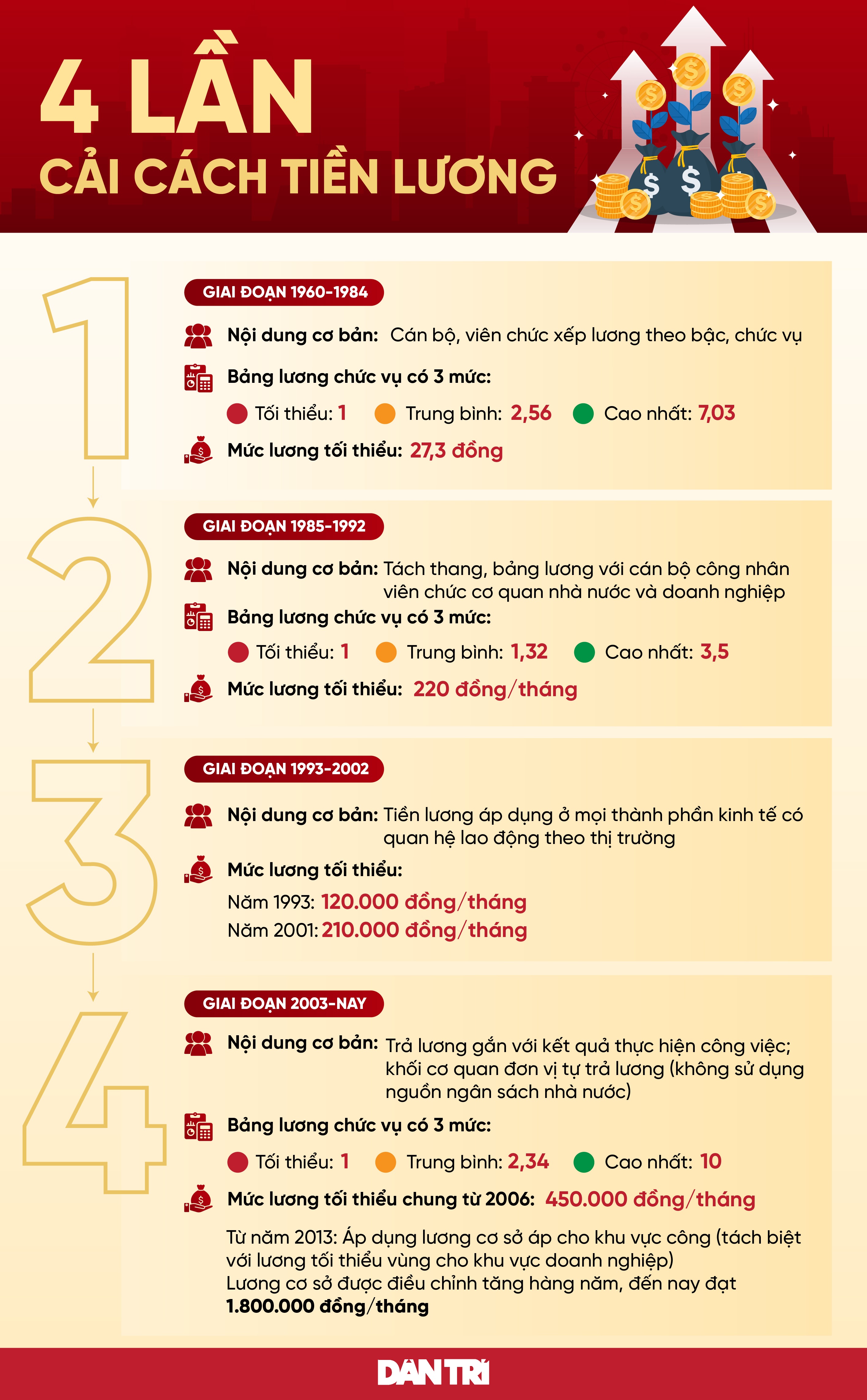
Dr. Bui Sy Loi, former Permanent Deputy Chairman of the National Assembly 's Social Committee, said that the salaries of officials, civil servants, and public employees have been continuously adjusted over the years, the most recent increase of 20.8% is part of the salary reform roadmap.
The increase in wages over the years has supplemented the income of workers.
"But overall, each such "drop by drop" increase does not bring about a big change in the salaries of cadres, civil servants, public employees and armed forces. 1.7 million people receiving salaries from the state budget can hardly expect, expect a living wage that does not exist, does not meet the correlation between labor - salary relations and living costs," Mr. Loi analyzed.

Besides, current wages do not truly reflect the value of labor.
The expert commented that despite being adjusted many times, salaries still do not create motivation for civil servants and public employees and lead to many consequences.
The first consequence, according to Mr. Loi, is the inertia of workers, wages that do not create productivity, and competitive pressure to perform tasks. In fact, the former Standing Deputy Chairman of the Social Affairs Committee commented that many cadres, civil servants, and public employees "have longer legs outside than inside", do not focus on work, affecting labor productivity.
Furthermore, low wages also cause brain drain from the public sector to the private sector.
Mr. Loi is concerned that Resolution 27, issued in 2018, has been delayed for many years and has not yet implemented salary reform. And low salaries, not enough to live on, are also one of the causes of corruption and negativity.
"Many officials and civil servants cannot overcome the temptation of money and become corrupt and negative. Few have the courage to keep themselves when life is difficult," said Mr. Loi.

As National Assembly Chairman Vuong Dinh Hue informed, it is expected that from July 1, 2024, the whole country will begin implementing a roadmap for fundamental salary reform.
Receiving this information, the former Permanent Deputy Chairman of the Social Committee said: "Starting the reform of salary policy from the middle of next year, I think it is slow, but slow is better than nothing."
Implement salary reform so that the shortcomings that have been shown can be overcome step by step. Besides, this reform will create motivation for development, arouse the sense of responsibility for cadres to strive and stick with the unit.

Analyzing the breakthroughs in the direction of salary reform, Dr. Bui Sy Loi emphasized that it is the complete removal of the old salary scale and table system, and the design of 5 salary tables for the whole system. In addition, there is the removal of the salary coefficient, and instead, the calculation of absolute salary levels.
Resolution 27 also clearly states the abolition of many previous allowances. In addition to salary, there is also a 10% bonus fund for the head of the agency to use for rewarding and encouraging cadres. Rewarding activities, like that, are no longer just words but specific money.
Also on this issue, Deputy Head of the Legal Policy Department, Vietnam General Confederation of Labor (VGCL) Le Dinh Quang said that the salary system for officials and civil servants is currently applied according to the calculation formula: salary = salary coefficient x base salary.
This does not reflect the real value of wages. In fact, public sector wages are low because the base wage is lower than the regional minimum wage.
When implementing the reform, the new salary table will be built with a basic salary equal to a specific amount, more expanded than the coefficient, pushed to a higher level so that public sector salaries gradually approach those of the business sector.
Mr. Quang assessed that the highlight in the direction of salary reform in the spirit of Resolution 27 is to pay salary according to job position. Accordingly, each industry will have a number of job positions, each job position has its own salary, specifically according to the complexity of the job.
According to Mr. Quang, the salary level applied to such a position will no longer be "equal" among all sectors and all civil servants as it is now.

According to Mr. Quang, with salary payment based on job position, even newly recruited and appointed people who meet the job requirements in a high-ranking job position will receive a salary commensurate with their efforts and work results.
"This salary payment will help to properly assess the capacity and position of cadres, civil servants and public employees. From there, it will create motivation for those who are truly talented, as well as encourage and attract good people to work in state agencies and public service units," Mr. Quang emphasized.
The Deputy Head of the Legal Policy Department of the Vietnam General Confederation of Labor said that the nature of determining job positions is to determine how many job positions there are in an agency or unit, how many personnel are needed, with what standards and capacities to perform the functions and tasks of that agency or unit.
According to this expert, determining the correct job position is a very difficult and somewhat "sensitive" task, but it must be done. Because this is an important basis for transparency and improving the quality of the staff, civil servants and public employees.

Former Deputy Director of the Center for Human Resource Demand Forecasting and Labor Market Information of Ho Chi Minh City Tran Anh Tuan summarized that Resolution 27 is expected to be a key solution for cadres, civil servants and public employees to be able to live on their salaries.

Mr. Tuan also agreed with the analysis that one of the new points in salary reform is the abolition of basic salary. Accordingly, the salary of cadres, civil servants, public employees and armed forces (public sector) will be designed to include: Basic salary (accounting for about 70% of the total salary fund) and allowances (accounting for about 30% of the total salary fund).
The addition of bonuses (the bonus fund is about 10% of the total salary fund of the year, excluding allowances) is also expected to give this reform a premise for innovation.
Mr. Tran Anh Tuan said that wages always face the contradiction of being low compared to the needs of workers but very high compared to the budget's capacity. In the process of implementing the wage reform policy, it is necessary to combine it with administrative reform and innovate the operating methods and salary payment mechanisms for the public service units.
"Real wages are inversely proportional to the prices of goods and services. Under normal economic development conditions, the annual natural inflation rate is often in the single digits. Therefore, if nominal wages are not adjusted according to the inflation rate, the value of real wages will decrease," Mr. Tran Anh Tuan emphasized.
Therefore, to ensure real wages for workers, this expert believes that there should be a policy to adjust nominal wages according to the inflation rate.
"For workers, the ultimate benefit and goal of labor supply is real wages, not nominal wages," the former Deputy Director of the Center for Human Resource Demand Forecasting and Labor Market Information of Ho Chi Minh City emphasized.
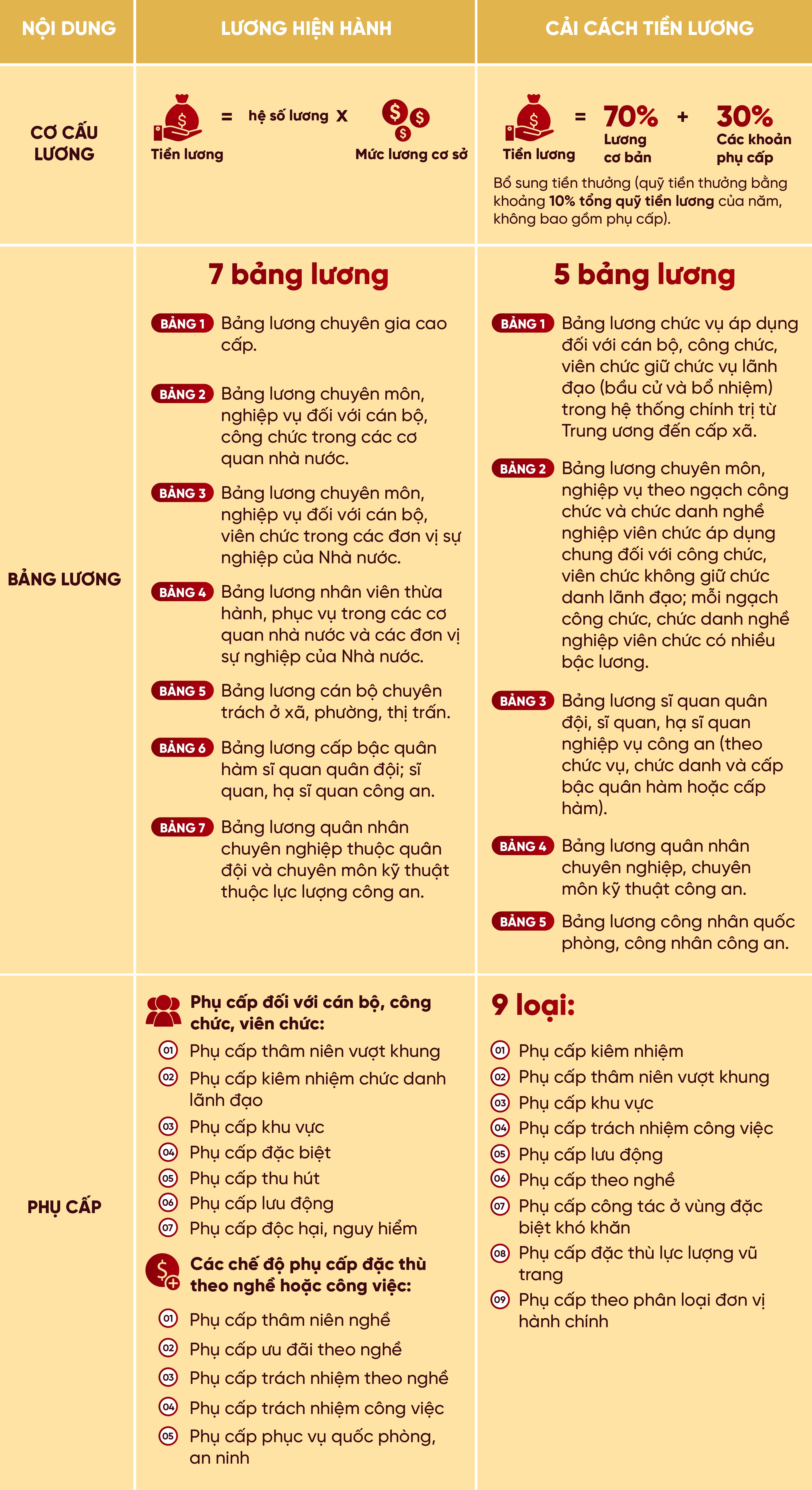
Source link








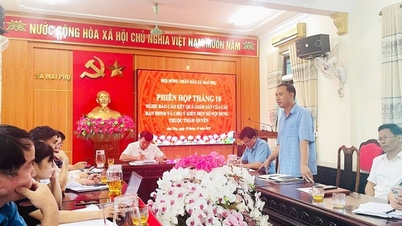

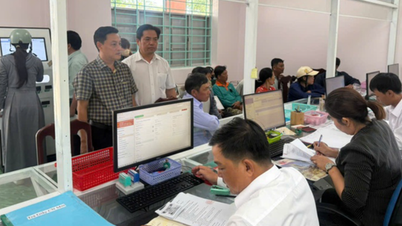
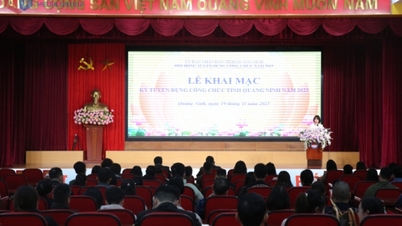



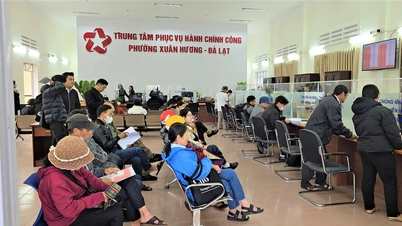













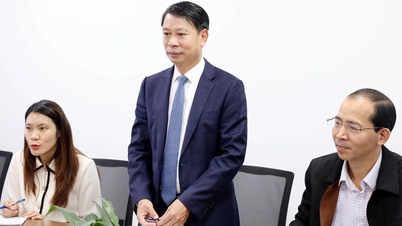




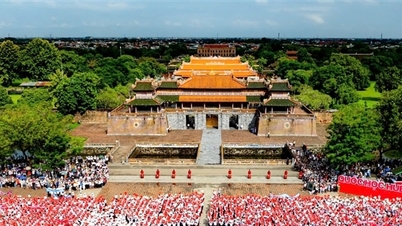











































































Comment (0)